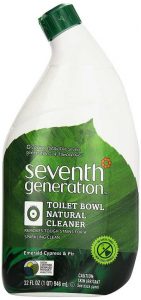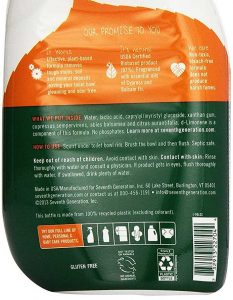Tossing bits of personal care products down the toilet may seem harmless. After all, there is a big drain hole under the toilet and most stuff immediately disappears when you flush it. However, just because a piece of dental floss that you threw in the toilet vanished when you flushed it doesn’t mean that it made it all the way to the sewer line under the street. It is possible that it got caught on a joint or elbow or something else in the drain line under your floor, and because dental floss doesn’t dissolve in water, it can catch other things going down the toilet until your toilet isn’t flushing at all. Remember, if a plumbing repair is the result of your misuse or abuse of the plumbing, your landlord can make you pay for that repair. When a Roto Rooter man cleans out a clogged toilet line, the hooked blade at the end of his snake brings back whatever it was that caused the clog. It is quite often dental floss. If the stuff that clogged up your drain line could only have come from you and shouldn’t have gone in your toilet in the first place, you will have to pay for that Roto Rooter visit, and those visits can be very expensive. The ONLY thing that should go in your toilet aside from human waste is toilet paper. Do not flush paper towels. Toilet paper is designed to disintegrate in water. Paper towels are designed to hold together when wet. Do not flush tampons. Some of the worst toilet clogs are caused by flushing tampons, especially the kind with a string in the middle of it. As I said, if you are flushing anything but toilet paper, it could cost you a lot of money! Also, flushing stuff that shouldn’t go in your toilet is very bad for the environment. Separating out non-biodegradable junk at sewage treatment plants is a huge expense for water districts everywhere.
IS IT SAFE TO FLUSH FLUSHABLE PRODUCTS?
The short answer is No. There are a lot of products sold in supermarkets that say ‘flushable’ on the label, including facial and baby wipes, cosmetic applicators, and cleansing cloths. In 2014, Consumer Reports tested a variety of wipes that were labeled ‘flushable’ and concluded that it isn’t safe to flush any of them. Here’s a short video from Consumer Reports explaining why: Are They Really Flushable? You should put flushable products in your trash can, not the toilet. As I said before, the only product that is safe to go in your toilet is toilet paper.
AREN’T FLUSHABLE PRODUCTS GUARANTEED?
Yes and No. Nearly all flushable products are guaranteed not to clog up your drain line; however, these guarantees are virtually worthless. All they say is this – if our flushable product clogs up your drain line, we will refund your purchase price. Now what does that mean? It means that if you pay $3 for a package of flushable wipes, and you flush them, and they get stuck in your drain line, and you have to to pay a plumber $300 to get them out, and you complain to the manufacturer about this, then they will send you a refund check for $3 – the price you paid for the wipes. They may also send you a letter of apology, but that is all they are going to send you. They won’t pay your $300 plumbing bill. None of the manufacturers of flushable products will pay your plumbing bill if their products clog up your drain line. And if you complain to the supermarket that sold you the wipes, you probably won’t even get your $3 back. The most you will likely get from them is a sympathetic letter from some faceless vice president in charge of health and beauty products telling you to take your complaint to the manufacturer. So remember – when you flush flushable products, you do so at your risk, not theirs.


